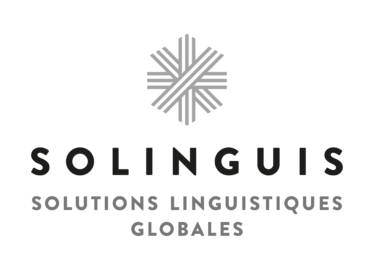
OUR INTERPRETING SERVICES

Interpreting enables people who speak different languages to communicate with each other verbally.
It’s the interpreter’s job to make sure everyone is understood. The work demands they have speedy analysis skills and an in-depth knowledge of the subjects discussed. They must also be fluent in the languages they interpret into, allowing the audience to forget that the speaker is communicating in a foreign language.
Solinguis offers interpreting services that cater to your specific needs. For European committee meetings, conferences, seminars and other events, our team of professional interpreters is here to help.
NEED INTERPRETERS?
Get in touch with our team to find the perfect solution.

Contact us

Call us: +33(0)1 53 23 96 20

SIMULTANEOUS INTERPRETING
| 01
This skill entails verbally translating someone’s speech in real time. Interpreters work inside a soundproof booth, listen to what the speakers say, and translate it live.
Those listening to the interpreters hear this translation through the headphones they are wearing. This is the most commonly used interpreting method, as it saves a great deal of time.
Remote simultaneous interpreting using an online platform can also be arranged for video calls.

CHUCHOTAGE (WHISPERED) INTERPRETING
| 02
No equipment is needed for this style of interpreting. The interpreter listens to what the speaker is saying and translates directly into the ear of the person the speaker is addressing.
This method is often used for meetings with very few attendees or when only one person in the audience needs a translation.

CONSECUTIVE INTERPRETING
| 03
Ideal for short sessions that don’t involve any interaction between the speaker(s) and the audience. The interpreter usually stands close to the person speaking, takes notes, then delivers an interpretation of what has been said to the audience.
The speaker(s) and interpreter agree in advance how they will divide what is said into sections, so that the interpreter interjects at defined intervals.
This method is very widely used for press conferences and inauguration speeches.

LIAISON INTERPRETING
| 04
Widely used for short, informal meetings, this service doesn’t require any special equipment.
The interpreter’s high level of skill means that the conversation is unaffected and continues to flow.

EQUIPMENT AND PLATFORMS
| 05
We can provide all the necessary technical equipment, as well as on-site support from one or more technicians, depending on the format of your meeting and your specific requirements. We can cater for all your needs:
ISO-compliant simultaneous interpreting booths, sound controls, headsets, light equipment for site visits, room sound systems, audiovisual equipment. A preliminary visit to your premises should be arranged to confirm the suitability of the set-up you have chosen.
We also work with several different remote interpreting platforms. These are selected based on what our clients are able to work with.

LANGUAGES
| 06
German
English
Arabic
Bulgarian
Chinese
Danish
Spanish
Finnish
Greek
Hungarian
Italian
Japanese
Dutch
Norwegian
Polish
Portuguese
Romanian
Russian
Slovak
Swedish
Czech
Please feel free to ask us about any languages we haven’t listed here.






 Deutsch
Deutsch English
English Français
Français